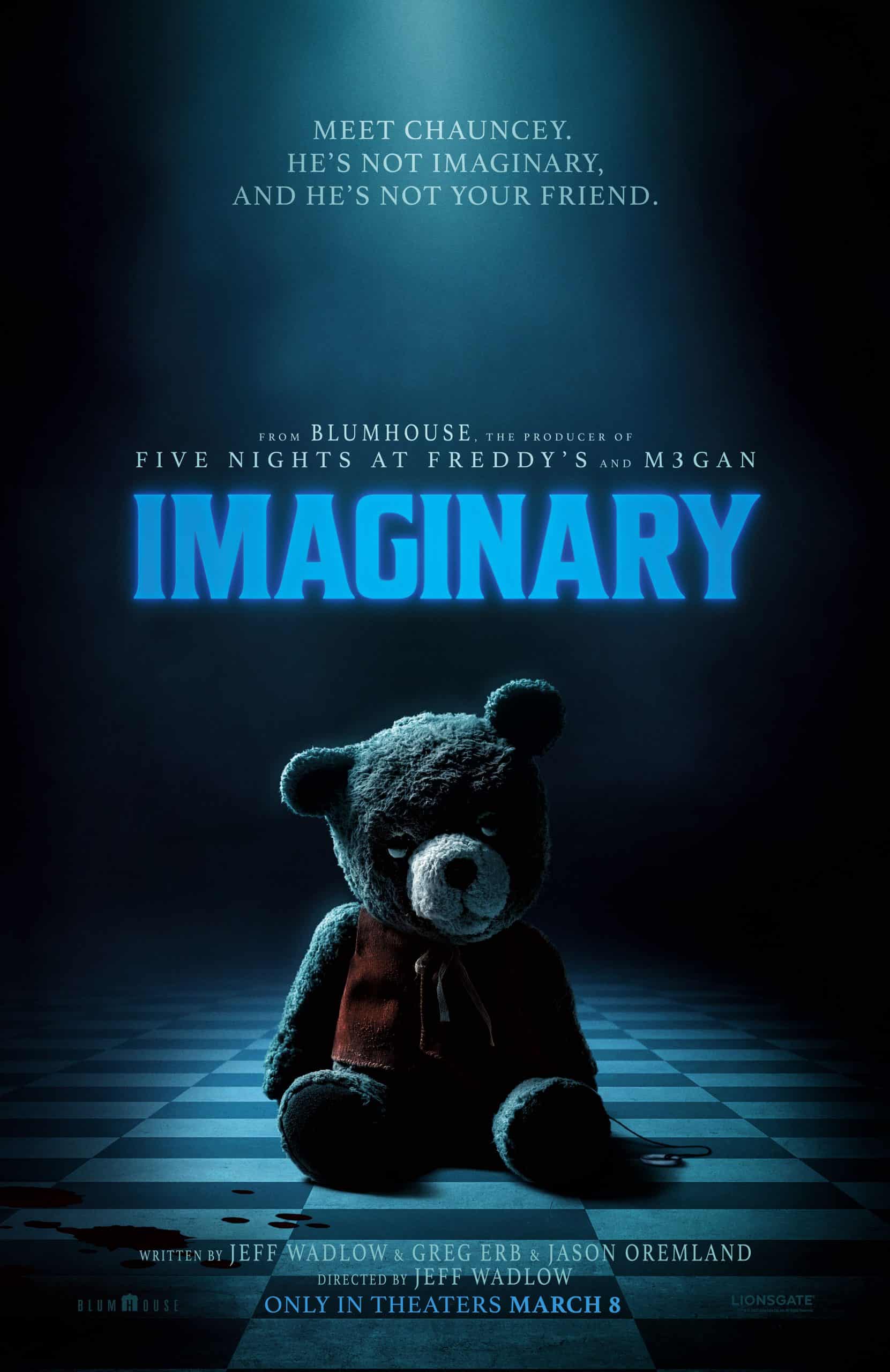
- Starring
- DeWanda Wise, Tom Payne, Taegen Burns, Pyper Braun
- Writers
- Greg Erb, Jason Oremland, Jeff Wadlow
- Director
- Jeff Wadlow
- Rating
- 14A (Canada), PG-13 (United States)
- Running Time
- 105 minutes
- Release Date
- March 8th, 2024
Overall Score
Rating Summary
Some say that the scariest concepts are those that we can imagine for ourselves; others would attest that such a philosophy is just a crutch for lazy storytelling. There is, in fairness, some truth to the idea that a filmmaker can drum up visceral horrors in the minds of an unsuspecting audience by drawing on their anticipatory sense of fantasy to fill in the blanks—people like Michael Haneke and, most recently, Jonathan Glazer have made incredibly powerful and haunting works out of the idea of forcing audiences to confront what they might want to see precisely by taking it away from them. Blumhouse Productions’s Imaginary is, obviously, not of the same breed as the decidedly Euro-arthouse features from those aforementioned directors, but in concept alone, Jeff Wadlow’s latest feature seems poised to, at least somewhat, draw on that sensation of viewer imagination for its own intended effect. Unfortunately, nearly all semblance of ambition in the film winds up snuffed out by a lack of distinct vision or commitment to see it through.
Moving back into her childhood home decades after some repressed traumatic experience, Jessica (Wise) hopes to begin a new chapter in her life alongside her husband (Payne) and her two step-daughters, Taylor (Burns) and young Alice (Braun). Everyone is finding it difficult to make the adjustment—what with Jessica trying her hardest to be forge a meaningful relationship as the girls’ birth mother is institutionalized, effectively cutting her out of their lives and breeding resentment—so it only makes sense that Alice would find solace in the comfort of an imaginary friend, spawned from a teddy bear she finds in a small back room in the dingy basement. As Alice became more committed to her new friend, whom she named Chauncey, Jessica’s reality begins to distort when it comes to parsing out what’s really in Alice’s (or her own) imagination.
Imaginary unequivocally belongs to the populist realm of basic horror films that a major studio has no qualms about pumping out multiple times a year, only to be forgotten until the sequel is released because the film’s budget was minuscule enough to turn a massive profit. The presentation follows the basic tenets of generic horror tropes—jump-scares, false starts, musical cues guiding you to every intended emotion—leaving most allusions to the supernatural as being entirely within the range of any other subgenre of horror. Nothing in Wadlow’s relaying of scares here (none of them effective, for the record) would feel out-of-place in a substandard slasher, or a paranormal feature, or an outright monster flick; the film tells audiences that it is supernatural without ever feeling like it is supernatural, making its attempted plays on one’s subconscious feel all the barer (teddy bear-er?).
This is, naturally, before Imaginary takes a full-on dip towards its promised world of the metaphysical, wherein the ideas Chauncey drums up for Alice and Jessica begin to manifest somewhat more literally as the film goes on. This is prime territory for some visual panache that would wholeheartedly justify the film’s attempts to be more fantastical and reliant on the professed power of a child’s mind, but Wadlow simply buckles under the pressure to present these ideas with that needed sense of verve. A story such as this requires a Guillermo del Toro or a Mike Flanagan to conjure up the sort of creativity that this premise invites; Wadlow certainly tries his best to channel his inner “Beetlejuice but fully serious” (as a side note, the film’s sparing use of practical effects is welcomed, so much so that it’s intermittent use is disappointing), but something in this approach feels sterile. Either Wadlow simply doesn’t have the sort of directorial mind that lends itself to this brand of insane vision, his past catalogue would strongly suggest that theory, or the confines of a paint-by-numbers production left all the ingenuity to be settled in the choice to simply give everything a saturated blue hue.
Those more open to the sort of straightforward horror cinema that Imaginary emblematizes may be surprised to learn over the course of the film that its narrative roots are steeped in the exact antithesis to those beloved(?) tropes; the ever-dreaded, so-called “elevated horror.” That’s right, the “everything is actually about trauma” sub-genre crawled its way across the borders of A24 and managed to make it over to Blumhouse! It’s an interesting enough conceit for the director of films like Truth or Dare and Fantasy Island to build his newest film around certain elements that would feel more at-home in the works of Ari Aster or Trey Edward Shults. However, the mixture of all these influences just doesn’t cohere at all, as the factory-like structure and execution hamper these attempts to be more thematically dense. Taking the bones of an art horror film and throwing them into a mass studio broth just results a soup too diluted to taste distinct in any significant way—one can’t take a cook who spends their whole career making other people’s recipes and expect them to concoct a symphony of flavour in the kitchen from scratch.
still courtesy of Lionsgate
If you liked this, please read our other reviews here and don’t forget to follow us on Twitter or Instagram or like us on Facebook.
Discover more from
Subscribe to get the latest posts sent to your email.
